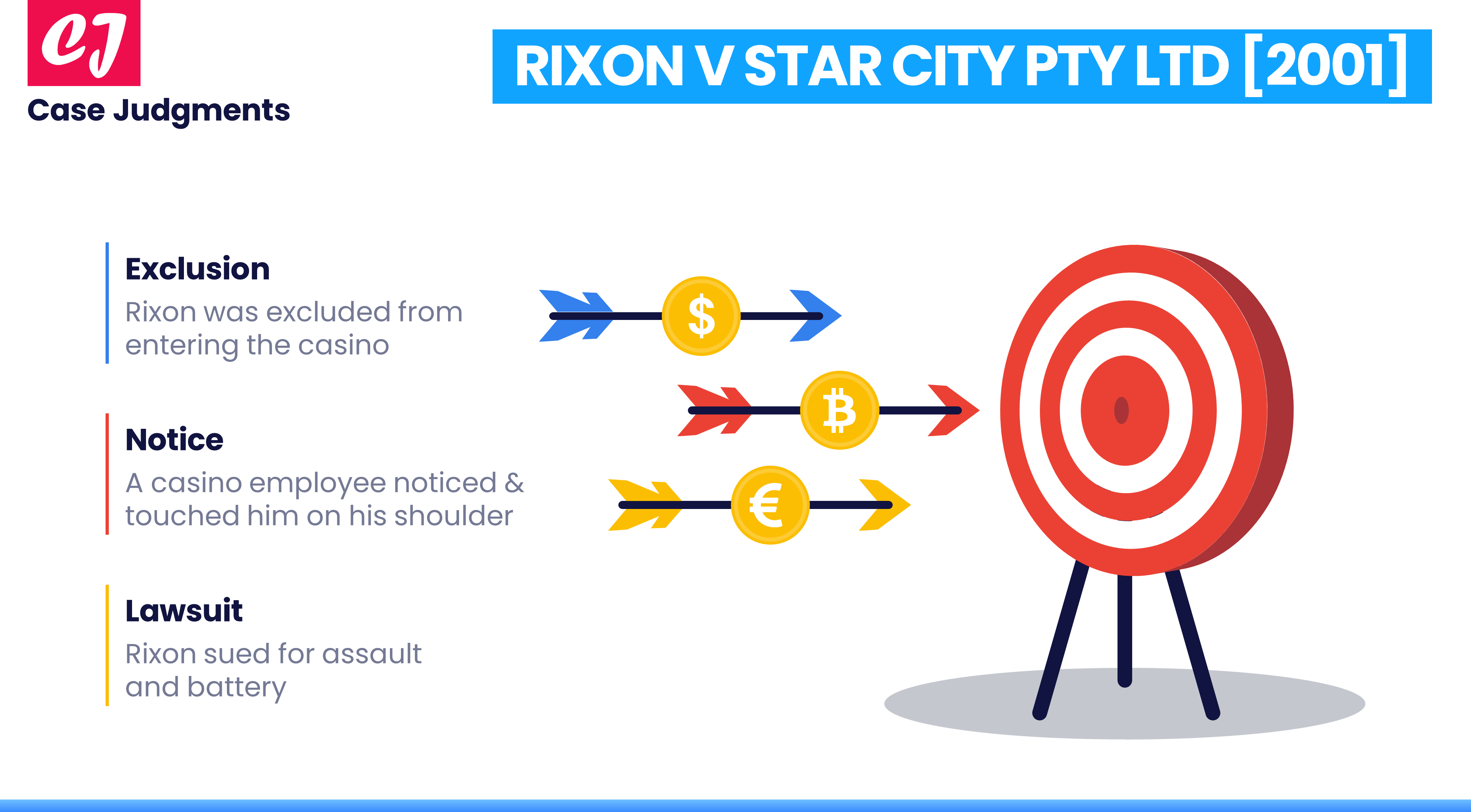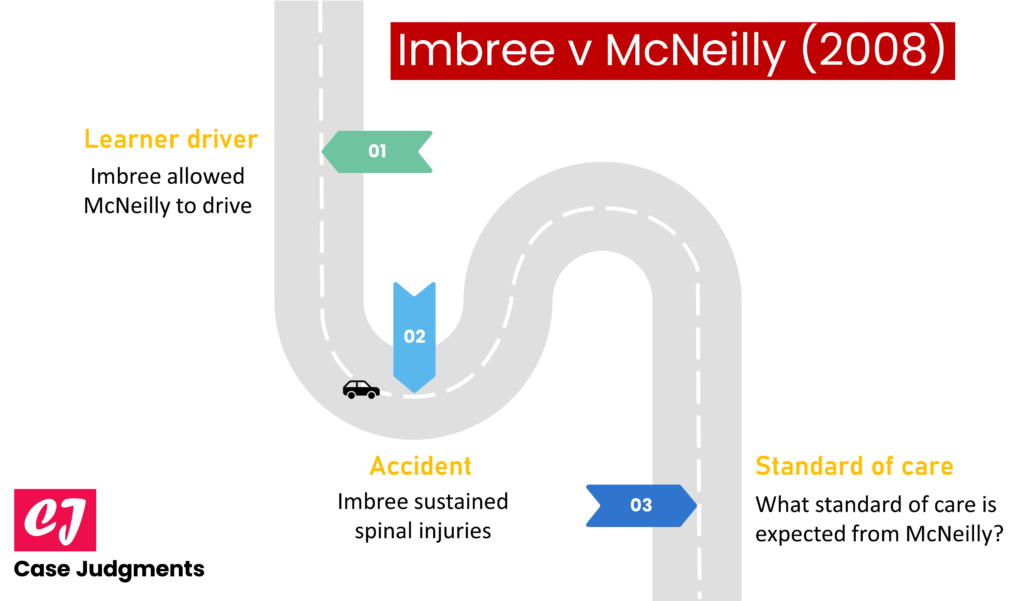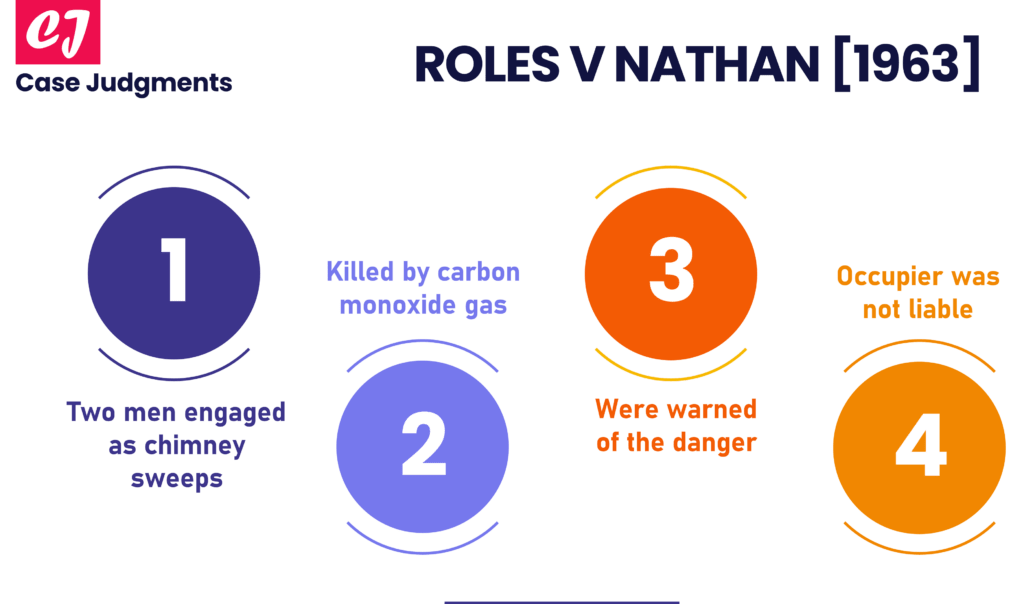
Rixon v Star City Pty Ltd [2001]: A Case Summary
Rixon v Star City Pty Ltd [2001] is an Australian case on the issue of trespass to a person. It examined whether the touching of the plaintiff’s shoulder by a casino employee would amount to battery.
Given below are the case details.
| Case name & citation: | Rixon v Star City Pty Ltd (2001) 53 NSWLR 98; [2001] NSWCA 265 |
| Court and jurisdiction: | New South Wales, Court of Appeal (Australia) |
| Decided on: | 28 September 2001 |
| The bench of judges: | Priestley, Sheller and Heydon JJA |
| Area of law: | Assault, battery and false imprisonment |
Facts of the case (Rixon v Star City)
The plaintiff, Mr. Brian Rixon, was an excluded gambler from a casino and was prohibited from entering the casino premises and participating in gambling activities. He had returned to the casino, despite being excluded, to play roulette. Employees at the casino noticed him and recognized him as an excluded person. One of the casino employees approached and placed his hand on the plaintiff’s shoulder and, when he turned around, asked him, “Are you Brian Rixon?” He was escorted to an “interview room,” where he was required to wait until the police came. Mr. Rixon sought damages for assault, battery and false imprisonment.
Legal claims
It was claimed that the casino employee’s actions of placing a hand on the plaintiff’s shoulder and asking if he was Brian Rixon amounted to assault. The same actions were also central to the question as to whether the plaintiff had been the victim of battery.
Mr. Rixon also sued for false imprisonment on the grounds that his detention in the “interview room” until the police arrived amounted to wrongful confinement against his will.
Judgment of the Court in Rixon v Star City Pty Ltd
The case was heard in the New South Wales Court of Appeal after the plaintiff failed at the first instance. The leading judgment was given by Sheller JA (with whom Priestley and Heydon JJ agreed).
Based on the facts of the case, the Court held that the actions of the casino employee did not intend to create an apprehension of imminent harmful conduct in Mr. Rixon’s mind. The question “Are you Brian Rixon?” was not seen as conveying an imminent threat of harm. Hence, the plaintiff had not been a victim of assault.
Furthermore, the Court found that the employee’s placing of his hand on the plaintiff’s shoulder did not constitute battery. It fell within the scope of everyday contact which is generally acceptable in daily life. The employee’s intent was to identify him and seek his attention, not to physically harm or make unlawful contact.
On the false imprisonment allegation, the Court determined that the Casino Control Act of 1992 and its regulations allowed for the detention of individuals like Mr. Rixon, who were unlawfully present in the casino and were excluded gamblers. The Act justified the plaintiff’s detention for a brief amount of time until the arrival of the police. Therefore, there was no false imprisonment as he was not meant to be in the casino in the first place.
Absence of hostility
It might also be important to note here that judges found that anger or a hostile attitude is not necessary to establish battery. For example, a medical procedure carried out without the patient’s consent could be considered a battery.
However, not every contact in day-to-day incidents will be taken to be a battery. The particular physical contact involved in this case was not of a nature that would constitute a battery. Because it fell within the realm of everyday physical contact. It did not involve harmful or offensive physical contact.
List of references:
- https://www.judcom.nsw.gov.au/publications/benchbks/civil/intentional_torts.html
- https://www.studocu.com/en-au/document/queensland-university-of-technology/torts/rixon-v-star-city-pty-ltd-summary/12419185
- https://media.studylast.com/2021/06/LAWS1012-HD-summary-notes-p.pdf
You might also like:
More from tort law:

